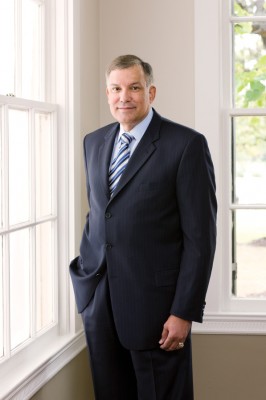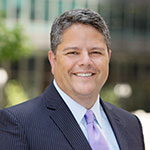Spend a little time talking to retired major general Josue “Joe” Robles, and you’ll be reminded of everything that’s outstanding about the United States military. Hear of his journey to become a two-star general, fighting in wars stretching from Vietnam to the first Gulf War and beyond, and you’ll know how his impeccably honed leadership skills came to be. Learn of his more than two decades of service at financial services leader USAA, and the deep, abiding respect he has for his fellow veterans becomes clear. Listen to his post-retirement plans—which have everything to do with giving back to his community and very little to do with personal needs—and the military’s commitment to public service echoes through every sentence. “To say the military had a profound impact on me would be a major understatement,” Robles confirms with a laugh.

Something similar can likely be said of the impact he’ll leave on USAA. Come early 2015, those postretirement plans will become reality when Robles steps down as the company’s president and CEO, a position he’s held since 2007. One of the things he hopes to leave behind is an understanding that great leaders and organizations are never done. They must keep learning, evolving, and improving with a disciplined focus on developmental growth of the workforce. For Robles, evolving and improving through education was a concept he understood at an early age.
Born in Rio Piedras, Puerto Rico, Robles was one of nine kids born to a father and mother who acquired only fourth- and ninth-grade educations, respectively. Robles realized his parents’ hardships might have been lessened considerably if they’d been able to continue their schooling. He would see other families that were economically advanced and wonder how they found themselves in such good fortune. “I made that connection [between education and success] pretty quickly,” he says.
So when a shortage of doctors prompted his community hospital to pay students’ medical school tuition in exchange for six years of work, Robles jumped at the opportunity. He was working as a lab technician when “Uncle Sam got to me,” as he says, in 1966. Any medical aspirations took a permanent back seat to military commitment. Exemplary performance in basic training set him on a career track that saw him ultimately work his way to becoming a two-star general, the highest permanent rank in the uniformed services.
While nobility factors heavily into Robles’s admiration of the military, it’s the merit-based system of leadership and responsibility that resonates so strongly with everything he does. Robles’s tenure includes fighting fires in Yellowstone and being involved with FEMA efforts among other accomplishments. Ironically, he says he went into the military thinking its leaders were simply appointed to their positions over time. “But leadership’s about having the mental and behavioral attributes,” he explains. “You may not be the most senior person or the one with the most experience, but you have the ability to demonstrate leadership.” Leaders are those with the strongest communication skills, the most knowledge, and the capacity to quickly assess a situation and demonstrate agility and flexibility.
It was Robles’s leadership in the military that resulted in multiple overseas tours, as well as appointment to Capitol Hill as Army budget director. He was also commanding general of the 1st Infantry before retiring from the Army in 1994 and turning his attention to USAA, a Fortune 500 company that provides financial services for the military and its families. He’d already served on the corporation’s board for four years while on active duty. By September 1994 he’d become USAA’s CFO and controller. “When I started at USAA, I found that I could influence the language, and more importantly, help with the leadership of the company . . . I was hooked,” he says.
Hooked, perhaps, but not blind to opportunities for improvement. When he first joined the company, USAA had separate lines of business between leaders and employees that didn’t facilitate a team dynamic. “It wasn’t until I insisted we adopt a teamwork model, a cooperation model, and a collaboration model,” says Robles, “that we’ve seen our best days.”
USAA has greatly increased its commitment to veterans in the past decade. Since 2005, the organization has hired more than 8,000 vets and their spouses who have been able to prepare for specific careers such as claims adjustment and mortgage processing through in-house training programs. Robles takes pride in USAA’s progressive policy, especially with hundreds of thousands expected to leave the military in the near future. “Above all else,” he says, “a company that was built by the military for the military has to take a leading role in advocating for veterans.”
Even as the finance industry keeps pace with technology, employee development and customer satisfaction initiatives are critical for building true corporate success through better teams and leaders. “You must always show respect for those who are making you successful,” Robles says of USAA’s workforce.
In planning his retirement from USAA, Robles says he gave notice a full year in advance, so the company wouldn’t struggle to make a lot of short-range decisions quickly. He hasn’t devoted much time to the details once that milestone comes around, but medical research still interests him and provides one option for volunteering his time. Education offers another. Both, in his opinion, are critical to the nation’s success and provide a way for him to continue to lead and serve. “There are very few cases in the world of people accomplishing success all by themselves,” says Robles. He may have hung up his fatigues, but you won’t find the major general simply standing at ease so long as there is impact to be made.
Check out all of Hispanic Executive‘s 2014 Top 10 Líderes here.

